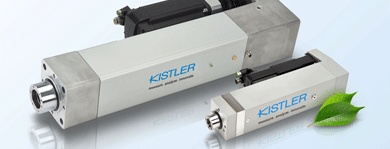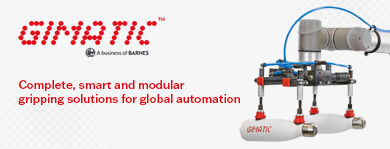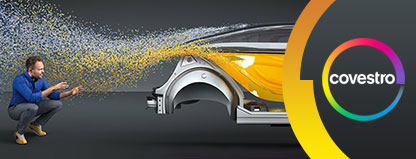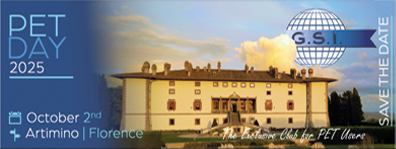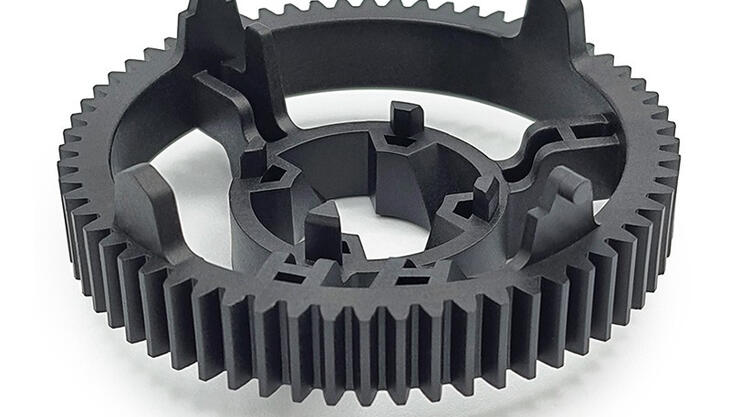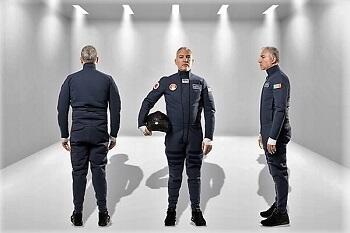
A group of companies in the Italian textile industry, headed by RadiciGroup, has created the first spacesuit for analogue simulation fully designed and engineered in Italy for the Space Medicine Operations (SMOPS) Mars mission. This endeavour was promoted and organized by Mars Planet - the Italian chapter of the Mars Society headquartered in the province of Bergamo - under the patronage of the Italian Space Agency.
The SMOPS analogue mission is mainly focused on space medicine: health monitoring of future astronauts and development of support technologies for the simulation of life in space and planet environments.
RadiciGroup teamed up with major Italian textile companies, such as Eurojersey, Vagotex and Defra, to realize the spacesuit project. The Group supplied the materials to make the suits for the six analogue astronauts participating in the mission and coordinated the development of the technologies needed to realize technical wear for extreme environmental conditions. From Aprile 10 to 23, the spacesuits are used in a series of experiments carried out at the Mars Desert Research Station in the state of Utah, USA, that will simulate the life and work conditions mission crews will face on the Martian surface.
“By participating in the SMOPS mission, RadiciGroup and the other textile companies involved in the project have had the opportunity to approach the frontier sector of aerospace, thus expanding and strengthening their know-how by experimenting with innovative solutions that may, in the future, be applied in business sectors, such as biomedical or others that require high safety standards,” commented Filippo Servalli of Radici InNova, the RadiciGroup Research & Innovation company. “Working on this mission, we were able to capitalize on the skills related to the development of personal protective equipment (PPE) acquired during the pandemic and then applied to the industrial sector, taking them to a higher level.”
The team headed by RadiciGroup contributed to the SMOPS mission project by developing and producing three items of technical wear, featuring high health, comfort and performance standards, to allow the analogue astronauts to move easily and safely outside the base station, with the support of advanced control, monitoring and communication systems.
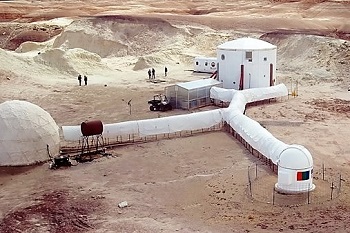 The undergarment set of the spacesuit consists of a long-sleeve shirt and shorts made with polyamide warp-knit Sensitive Fabrics from Eurojersey to ensure comfort and breathability. The shirt is equipped with electrical circuitry and sensors designed to measure the vital signs and geospatial parameters of the astronauts. The sensors can be detached, so that the garment can be washed with no risk of damaging the internal circuitry.
The undergarment set of the spacesuit consists of a long-sleeve shirt and shorts made with polyamide warp-knit Sensitive Fabrics from Eurojersey to ensure comfort and breathability. The shirt is equipped with electrical circuitry and sensors designed to measure the vital signs and geospatial parameters of the astronauts. The sensors can be detached, so that the garment can be washed with no risk of damaging the internal circuitry.
Hence, a comfortable flight suit suitable for use during work activities and capable of supporting the analogue astronaut in an environment simulating the Martian atmosphere. Made lighter by eliminating all superstructure, the suit meets both aesthetic and performance needs; in fact, the double-sided stitching allows for reducing thickness to the minimum and improving mobility and lightness by 30%. The garment has wearable technology pockets designed for optimal usage of space and volume. Furthermore, it has excellent skin contact properties and is designed for maximum comfort and flexible movement, thanks to the elasticity and high breathability of the materials used (polyamide, in particular). The suit is also dustproof, offers UV protection and ensures good thermal resistance. The latter property is achieved through air trapped in the fabric interstices that flows freely inside a 3D alveolar structure, thus providing a self-regulating body temperature system.
For the first time, a team of Italian companies has also designed and realized the lower part of an analogue spacesuit, similar to the one used in actual space missions: a protective garment made up of several layers designed for use in extreme environmental conditions and situations. The suit is equipped with all the protection systems typical of a spacesuit and also has an aerogel layer for further protection and layers of wool and polyamide padding for effective thermal insulation.
“RadiciGroup immediately grasped the application potential inherent in space research, and thus we found an ideal partner for our SMOPS mission,” Antonio Del Mastro, president of Mars Planet, pointed out. “Collaborating on this project not only gave us an opportunity to make the first prototypes of an analogue spacesuit, but also allowed for a spillover of knowledge among project participants in the fields of space and textile technologies, while we worked on creating very special added value. We hope that other companies in the Bergamo and Lombardy industrial ecosystem will approach the space sector with RadiciGroup’s thoughtfulness and lead to the formation of a local industrial space sector within a short time frame.”
“The collaboration between Mars Planet and the team of Italian textile companies was of great value in two respects,” Servalli concluded. “Firstly, the innovative aspects of the project allowed us to experiment with textile solutions suitable for extreme conditions, which we can now transfer to applications for worker protection in the workplace. Secondly, the networking among the participants in this challenge was a real example of teamwork among the excellent enterprises in our territory.”







